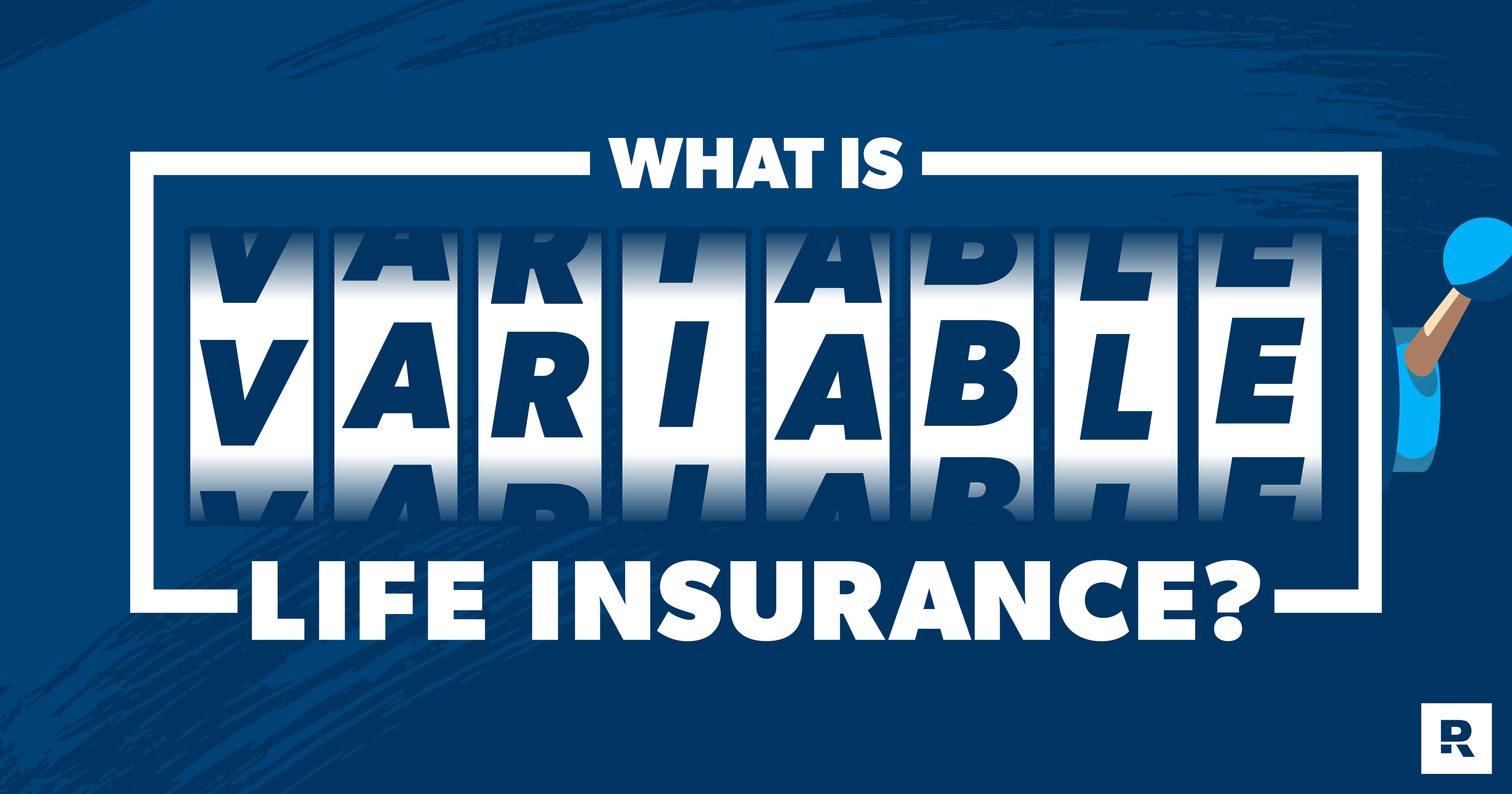
How does the idea of CrossFit every day, kale for dinner and no dessert sound? Hard? Well, how about doing that for 10 years and you only lose two pounds? Yeah, building a house with a spork probably sounds more appealing.
If you’re not up for that, variable life insurance is probably not for you.
Variable life insurance takes the adage “no pain, no gain” and flips it into “all pain, still no gain.” It offers more investment options than other types of life insurance (which is where the gain supposedly should happen), but it comes with higher risks and more frequent charges (pain!).
It’s a risky bet for you with a guaranteed poor return. Why guaranteed? We’ll get into that in a sec. But just know, there’s a better way to take care of your life insurance and investing needs.
We’ll go over:
What is variable life insurance?
What are the key risks of a variable life policy?
How does the death benefit work in a variable life policy?
Compare Term Life Insurance Quotes
How do I get out of a variable life policy?
What’s the difference between variable life insurance and whole life insurance?
What’s the difference between variable life insurance and term life insurance?
What Is Variable Life Insurance?
Variable life insurance (not to be confused with variable universal life insurance) is a type of whole life insurance. That means it’s part life insurance, part savings and investment. It gets its name from the way the cash portion of the policy is invested—you get to pick from a variety of investment options and the value of those options can vary (go up and down) over time.
Like with all life insurance, you pay a premium. One part of it goes toward the cost of keeping the death benefit in place so it’s available to your beneficiaries. The other part goes to build the cash value through investment sub-accounts.
The sub-accounts let you put your money into all kinds of things—stocks, bonds, mutual funds, money markets. Most variable life insurance policies have lots of sub-accounts to choose from—some offer more than 50 options. This lets you manage your investments while giving you a potentially higher return than other life insurance options.
Unlike those other options though, variable life insurance doesn’t come with a guaranteed rate of return.
But here’s the deal: Life insurance has one job—to provide for your loved ones when you die. It’s not a way to build wealth. You’ve got way better options for both life insurance and investing that don’t involve whole life policies like variable life insurance.
Here's A Tip
Life insurance has one job: to provide for your loved ones when you die. And term life insurance is the only insurance that understands the assignment.
What Are the Key Risks of a Variable Life Policy?
Typically, variable life insurance comes with more investment risk than other types of permanent life insurance policies. And just like with traditional investment options (mutual funds, index funds, etc.), there are dozens of risk levels.
While you have more options for your money with a variable life policy, they come at a steep price. Think about it. If the investment option you pick performs poorly, you’re the one who loses money, not the insurance company. Sound risky? It is.
You might be thinking, How is this any different from investing in the stock market? If your option does poorly, you lose money that way too! Fair point. The difference lies in who’s picking the stocks. While you have more options in variable life insurance than other types of whole life, you still only get to choose from a set list—that the insurance company picks out. And they’re not experts.
Also . . .
The management fees attached to each variable life investment option are sky-high. Not only that—the fees are also automatically deducted from your cash account. And if you don’t have enough money in your cash account, the money will be collected through a hike in your premium. What if you can’t swing a higher premium? Get ready to see the policy lapse. Yikes!
Here’s a breakdown of what to watch out for:
- Policy fees and expenses: Not only are there fees when you buy the policy—called introductory fees—but there are also ongoing fees that can increase over time. Here’s a quick list of what you’ll be dealing with if you buy a variable life policy: premium payments, surrender charges, transaction fees, and ongoing investment management and administrative fees. And don’t forget those charges reduce the value of your cash account.
- Policy lapse: Insurance companies keep a close watch on how much money you have in your cash account. If you don’t have enough money to cover policy fees, your policy could lapse, and your coverage would be canceled.
- Risk of loss: Remember when we mentioned the phrase “no pain, no gain”? Here’s where that idea hits home. If the investments you pick don’t do well, you’ll likely lose money.
- Insurance company risk: The more out-there you get with insurance policy schemes, the more likely you are to run into questionable companies. Since the insurance company that issues your variable life policy backs all guarantees, including the death benefit, it’s super important to pick one with a solid history of financial strength. (But we’re pretty sure you’ve heard enough negatives about these schemes by now to avoid them entirely.)
How Does the Death Benefit Work in a Variable Life Policy?
The death benefit is the amount of money that goes to your beneficiaries when you die—also called the face amount.
Depending on the death benefit option you chose when you bought the policy, your beneficiaries could also get the face amount plus the cash value of your account, or they could get the face amount plus the total of your premium payments.
Example of Variable Life Insurance Payout
Let’s say you paid $50,000 in premiums for a variable life policy over your lifetime, and your cash value account is worth $75,000. If the face amount of your policy is $500,000, your beneficiaries will receive one of the following:
- Face amount only: $500,000
- Face amount plus the cash value of your account: $575,000 ($500,000 + $75,000)
- Face amount plus your premium payments: $550,000 ($500,000 + $50,000)
How Do I Get Out of a Variable Life Policy?
If you change your mind about life insurance, you can cancel (aka surrender) your variable life policy. However, if you just stop paying your premium without telling your life insurance agent, the policy will lapse, and you’ll be charged a surrender fee. The best way to cancel your policy is to talk with your insurance agent first to see what cancelation options are allowed.
Typically, if you cancel your policy within the first 10 days of buying a variable life policy (this period varies depending on your insurance company and state), you won’t be charged a surrender fee. Instead, you’ll get a refund of the premium you already paid.
If you cancel after the free look period (that’s actually what they call it in the insurance biz), you’ll most likely be charged a surrender fee.
Here's A Tip
Make sure you have another life insurance policy in place (ahem, term life) before you cancel your variable life insurance policy!
Got Kids? Use These 5 Tips to Get the Right Length of Life Insurance.
If you have kids depending on your income, you might be wondering, How long should my life insurance policy last? Great question!
What’s the Difference Between Variable Life Insurance and Whole Life Insurance?
While variable life insurance is a type of whole life insurance, they are different. With whole life, the insurance company decides how and where to invest the money in your cash account. But with a variable life insurance policy, you decide where your money is invested within the options provided. (That means you better dust off your Investing for Dummies and make sure you understand how investments, like stocks, bonds and mutual funds, work!)
What’s the Difference Between Variable Life Insurance and Term Life Insurance?
The major difference between variable life and term life is that variable life insurance has an investment component along with the face amount, and term life insurance is just the life insurance policy, no frills.
One is sold as a wealth-building vehicle while the other is just protection for your family if you die.
We are huge fans of term life insurance. It costs way less than a variable life insurance policy with the same death benefit because . . . no frills.
And since you’re saving on life insurance, you’ll have more money to invest in retirement accounts like your 401(k) and Roth IRA where the real wealth building happens. That’s how you take care of your life insurance needs and retirement!
We always recommend term life insurance over variable life insurance.
Next Steps
- Learn more about term life insurance.
- Talk with the folks at Zander to get a term life insurance policy in place.
- Cancel your variable life insurance or any other whole life insurance policy.
- Start investing what you save on life insurance premiums.



